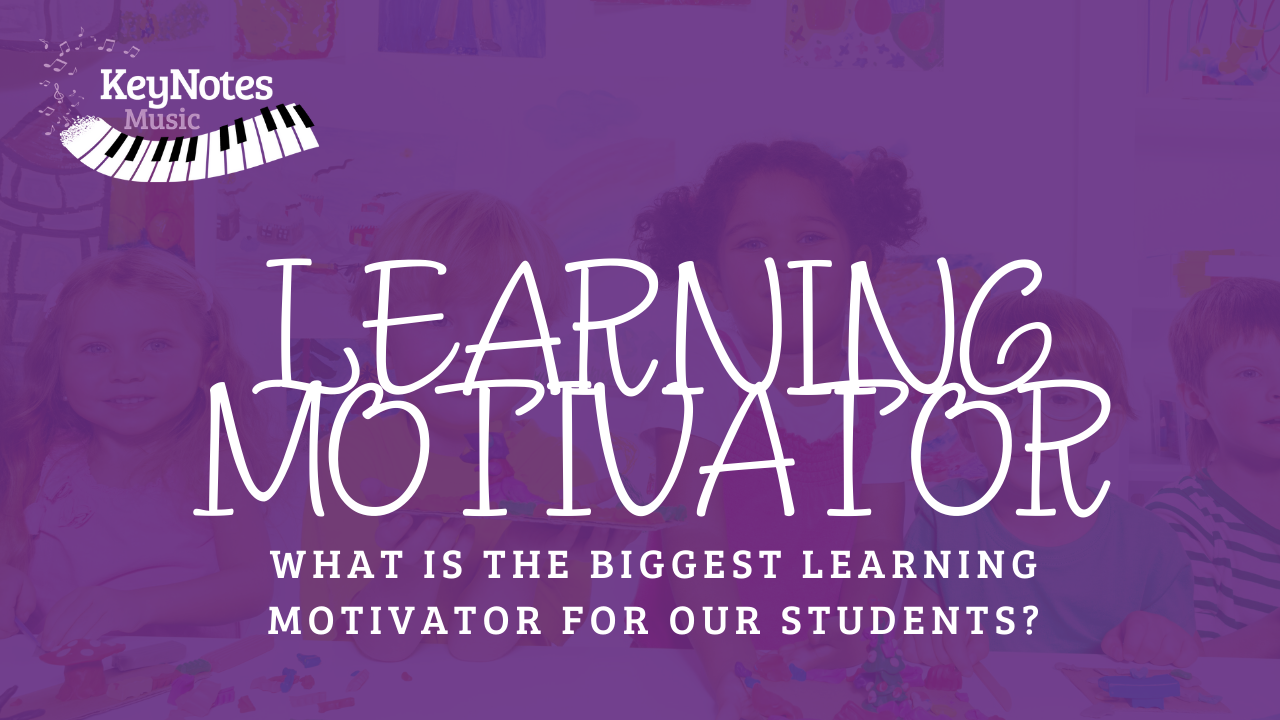The biggest learning motivator for kids? Learning with their peers.
Jun 20, 2020
Never ever did I think I would be saying this, but my kids have had three months off school!
Three months!
And by the time they go back it will be six months.
What a journey it has been, and we are not yet at the end, but as with any good journey, there have been some learnings along the way. And those learnings can often be applied both to my parenting, and to my teaching. I analyse these with both my hats on and find some fascinating insights. But there is one main insight I'd like to share with you.
You see, I have always said that children aren't expected to learn by themselves in any other area of their education (other than in instrument lessons); but actually, this theory has well and truly been turned on its head!
They're now learning by themselves, at home, with no peer interaction at all.
It is an incredibly unique opportunity (not one that I would choose to have, mind you), that we can now see what happens when they are expected to learn without their friends. And, as I always suspected it doesn't look great.
I am going to focus on my middle child. She is 8-years old, very studious and diligent. In normal circumstances, she is hard-working, always wants to do her very best, and has a love of learning (teachers' words, not mine!).
Now we have had three months of homeschooling*, sadly, that love has dwindled... severely. I know (hope!) that she will get it back. But I have been unpacking why her motivation levels are at rock bottom, both by listening to her general musings, and by speaking directly to her about it.
Only a few days in, when she was finding it difficult to get started on a piece of work, I asked her what she normally does at school to get started. She said that she chats to other kids in her class. They talk through the task, share ideas and generally get each other motivated. I did my best to set up a couple of "zooms" with her friends first thing in the morning, so that they could go over the work together, but this only happened sporadically.
Then a few weeks into no-school, one of my own friend's dads (who used to be a Headteacher) was writing an article about this situation, and asked for my kids to comment on what they thought of it all.
All three of them said they miss their friends.
It is most certainly the social aspect of school that makes it where they need and want to be.
Wonderfully, we have more time for instrument practice at home at the moment. And we have set Hetty (middle child) up with a practice buddy: one of her teacher's students who is at a similar level to her, and they meet twice per week, playing together, sharing pieces and learning, for an hour each time! Her motivation to practice has increased massively since we started this (and I have implemented it with my own students too, after seeing the impact!).
It isn't just the shared learning experience that motivates, it is also the element of friendly competition that seeing others progressing, inspires. I'm sure that is also part of it for Hetty. If you see others doing really well with the work, and being praised for it, it spurs you on, that's just human nature. Plus hearing teacher feedback to peers gives each child so many opportunities to understand the work from multiple angles, and learn how to improve their own. I could go on and on about the different ways in which the learning environment is so rich when peers are learning together.
For me, all this gives even more strength to the argument for group piano. I never thought that we would be able to prove that motivation massively decreases when you aren't learning with peers, but with this situation, we have been able to.
I have done everything I can to make sure that my online group piano lessons maintain the motivation that we enjoy in person, by planning tasks that require interaction between students, setting up practice buddies as referred to above, and, quite frankly just keeping the lessons going, even though online is not my favourite way to teach! As a result I have seen enormous progress in my students' piano playing, and they are more motivated than ever! Because one benefit of lockdown is the extra time we all have!
And now, more than ever, I can confidently say, learning with other children, whose learning aims are the same as yours, is such an enormous motivator. I would go so far as to say it makes the difference between very little progress, and a whole lot!
Have you noticed an impact on either your own children or your students when it comes to their motivation, or lack thereof, when they can't interact with their peers?
Melanie 💜
*My point here, to clarify for those who homeschool, isn't relating to the lack of success in homeschooling, but that lack of peer interaction is a problem. Of course homeschooled children see and work with other children, just not necessarily in a formal school setting.
Want to learn more about the
KeyNotes Music program?
Download our teacher information brochure to discover what our license includes, which programs we offer and what our approaches to learning are:
We will send you emails from KeyNotes Music, unsubscribe at any time.

